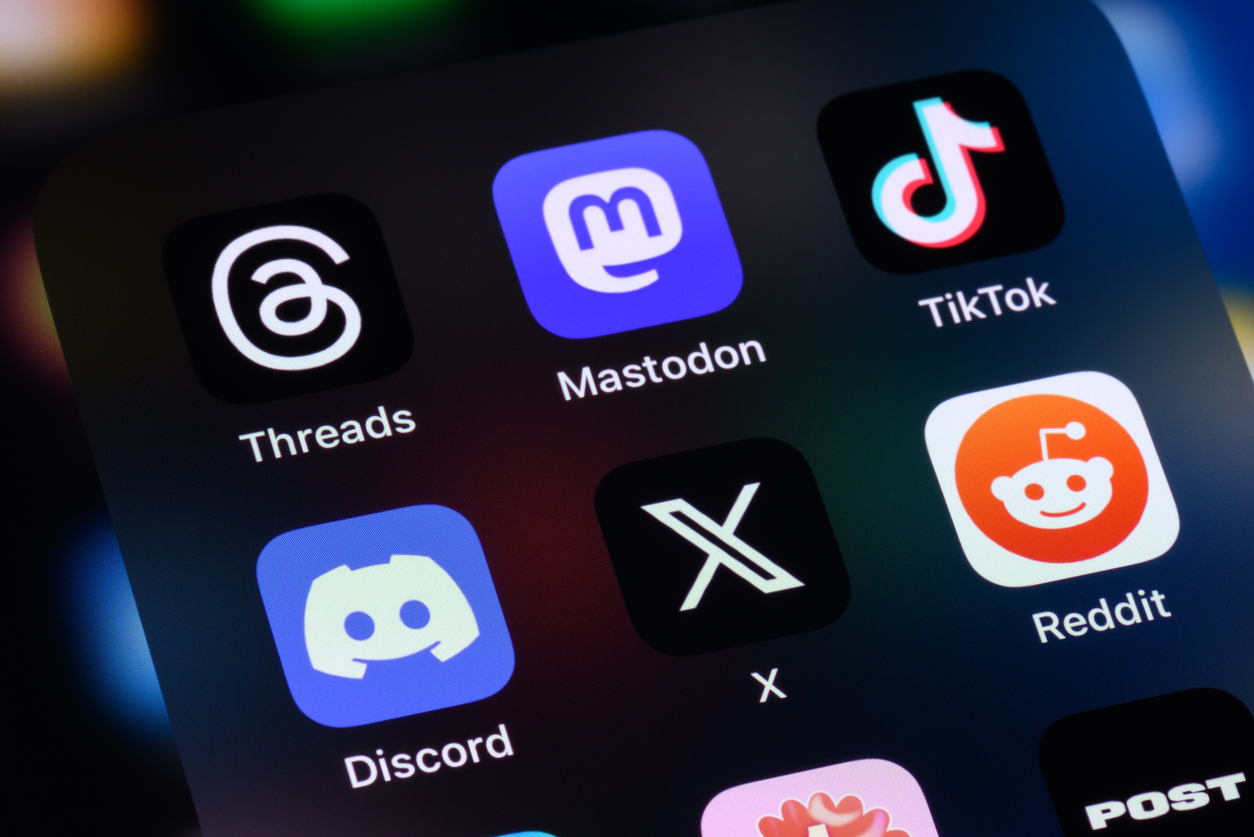The Scoop: How the Trump administration could change social media
Also: KFC sues Church’s over ‘original’ brand; NFL waits post-election for MAGA player suspension.

It’s been only a little more than a week since the U.S. presidential election and the wheels of change are already turning – including on social media.
Since President-elect Donald Trump secured his return to the White House, there’ve been a movement and conjecture about the future of both TikTok and X.
Congress passed a bill that could ban TikTok unless its parent company, ByteDance, sells to a non-Chinese company. President Joe Biden signed that into law, though the ByteDance is challenging it in the courts. .
Trump, who tried to ban the short-form video platform himself, has changed his view.
In March, Trump said during an interview with CNBC that he still believed TikTok posed a national security risk. However, he disagreed with the idea of banning it because “doing so would help its rival, Facebook, which he has continued to lambast over his 2020 election loss,” according to the Associated Press.
Meanwhile, X is facing another user exodus after owner Elon Musk’s hard turn into conservative politics, with users this time moving toward Bluesky, a decentralized social media site.
Since September, Bluesky has grown from 9 million users to over 14.6 million as of Tuesday, with a surge in new users over the weekend, according to TechCrunch. That includes a reported 1 million people in just the past week.
Trump announced on Tuesday that Musk and former GOP presidential candidate Vivek Ramaswamy will lead a new non-governmental agency to provide “advice and guidance” to “drive large scale structural reform, and create an entrepreneurial approach to Government never seen before.”
Why it matters: While these most recent developments are noteworthy, they’re also largely driven by the post-election groundswell of emotion and political posturing. We’ll see how things shake out as new political realities settle in.
Walking back the TikTok law can’t be handled with an executive order. Because it was passed through Congress, it needs to be overturned either by the courts or through another law. So untangling that sticky situation could take time, leaving TikTok in limbo for even longer. And Trump has shown himself to be fickle in the past – while he likes TikTok now that he’s found popularity there, it’s not impossible his anti-China actions could lead him to flipflop once again.
The previous strategy of holding the course, not withdrawing from TikTok but also exploring other microvideo platforms like YouTube Shorts and Instagram Reels, holds up.
X continues to present a thornier conundrum. While many users, brands included, have fled the volatile site, a clear successor has not yet emerged. Today the buzz is around Bluesky, but at other times it’s been Threads, Mastodon and more. Right now people are motivated to make a change, but will that stand or will they slide back into the familiarity of X?
Others yet may want to become more aggressive on X, given Musk’s seeming prominence in the new Trump administration. Loyalty is a powerful currency under this president, and X can be one way to express it.
But it does seem that users are beginning to self-segregate more based on politics. Where Twitter/X was once a mixing grounds of different political viewpoints, it appears more liberal users are heading to other sites, leaving more politically siloed spaces. That can mean brands might need to make choices about where to reach their audiences, even if their own brand has no particular political stances.
It’s a time to be nimble, be ready to change course and to listen very closely to your audience.
Editor’s Top Reads
- KFC is suing Church’s Texas Chicken, alleging the company is violating its trademark rights by using the phrase “original recipe” in ads and promotions. The lawsuit claims this will likely confuse customers. “We take it personally when another company tries to pass off our iconic taste and branding as their own,” a KFC spokesperson told CNN about its trademark that dates back to 1984. Church’s declined to comment, citing the ongoing lawsuit. By taking Church’s to court over “original recipe” usage, KFC is making a bold move to stand out in a crowded market – and using a legal case as a PR move. This suit, while perhaps of legal merit, also grabbed headlines and reminded audiences who has the true original recipe. And KFC needs the boost: Yum! Brands, KFC’s parent company, reported a 5% drop in U.S. same-store sales, marking three straight quarters of decline. This lawsuit sends a strategic message to consumers, reinforcing KFC’s position as the original fried chicken destination.
- The NFL delayed fining San Francisco 49ers player Nick Bosa for breaking league rules by wearing a MAGA hat until after the presidential election. The league prohibits players from displaying personal or political messages on game days. However, it took the NFL nearly two weeks to issue Bosa an $11,255 fine, whereas Pittsburgh Steelers wide receiver George Pickens received his earlier this season fine within days for having a personal message on his eyeblack. The Wall Street Journal reported that NFL owners admitted Trump’s past pressure of the league, most notably during the Colin Kaepernick protests, influenced their handling Bosa. No matter how the NFL handled the situation, it would have likely faced criticism. In the end, they upheld their rules, it was only the timing that was changed. It’s a fine and difficult line to walk in an era when the president is also likely to chime in on Sunday gameday happenings. Their decision sought to minimize that outcry – and perhaps to bury the story on a newsy week. It’s a risky decision that could pay off as Trump is occupied elsewhere.
- Apple’s latest devices come with a range of AI features, including summaries of notifications from apps and text messages. Although these summaries are technically accurate, the tool struggles to understand the context of human communication when combining details from multiple messages. As a result, the AI-produced recaps can be confusing, awkward and amusing. A list compiled by Verge writer Wes Davis showcases some of the most hilarious examples. User danielocnnr posted on X that they enjoy Apple Intelligence’s summary feature because it turns every boring notification into a “cute little mystery to unwrap.” This was after receiving a summary that read: “Love salmon might not be a good idea; polar bears are back in Britain.” Apple’s technology will surely evolve and improve over time, but for now, they serve as a cautionary tale for using AI. The technology is not capable of replicating human understanding of context and sentiment or replacing the skills and instincts a professional communicator brings to the table. AI is still just a tool. You’re the pro.
Casey Weldon is a reporter for PR Daily. Follow him on LinkedIn.







